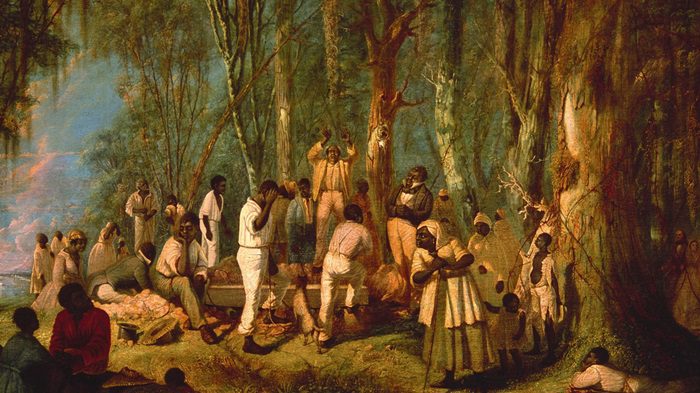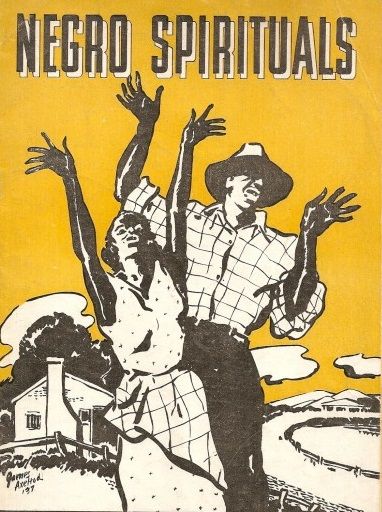ORIGIN
When Africans were enslaved they were not granted the freedom to express their own religious beliefs or non-beliefs. Instead, they were forced into Christianity by their slave owners. As a result of that, they decided to put their own twist on things and start a genre of music called Spirituals. Spirituals symbolized the slave population’s unique expressions of Christian religious values and ideals tempered by the social, cultural, and physical experience of prolonged involuntary servitude. Spirituals were the earliest form of religious music to develop among African Americans in the United States. The birthing of the spiritual symbolized a spirit of freedom and was a way for slaves to express themselves in ways that truly showed who they were as people.
ELEMENTS



PERFORMERS

Paul Roberson (1898-1976) was credited as the first person to sing a concert comprised entirely of Negro spirituals. In addition to being a renowned bass-baritone, Roberson also excelled as an actor and was best known from his role in the film “Showboat” for his popular “Old Man River” song.

Harry T. Burleigh (1866-1949) was the first person to arrange the Negro spiritual for solo voice. Burleigh is also credited with starting the practice of closing recitals with a group of spirituals. He is best know for his solo arrangement “Deep River” from his “Jubilee Songs of the US” (1916).
SOCIAL IMPLICATIONS
Since not all of the slaves spoke the same languages, they used spirituals as a double entendre. A double entendre is song text with double meanings. The spirituals, as well as many other forms of music during that time, were sung as a way for the slaves to communicate back and forth with each other. It was also a way for the slaves to worship the Lord and talk to each other without their owners being able to really understand them.
INFLUENCE ON PRESENT GENRES
Negro Spirituals have led to what we know now as gospel music. Gospel music is a modern form of spirituals often sang in the black church. Gospel music is performed for aesthetic pleasures, religious purposes, ceremonial purposes, as well as entertainment purposes.
CONCLUSION
Before reading this chapter I knew that spirituals had a big impact on music today because of how big gospel music is, but this chapter put in perspective how big the impact actually was. I like that spirituals were a way for slaves to praise the Lord and stay close to religion while going through such hard times. That’s very similar to today because oftentimes when people go through rough times, especially black people, we like to turn on gospel music.


